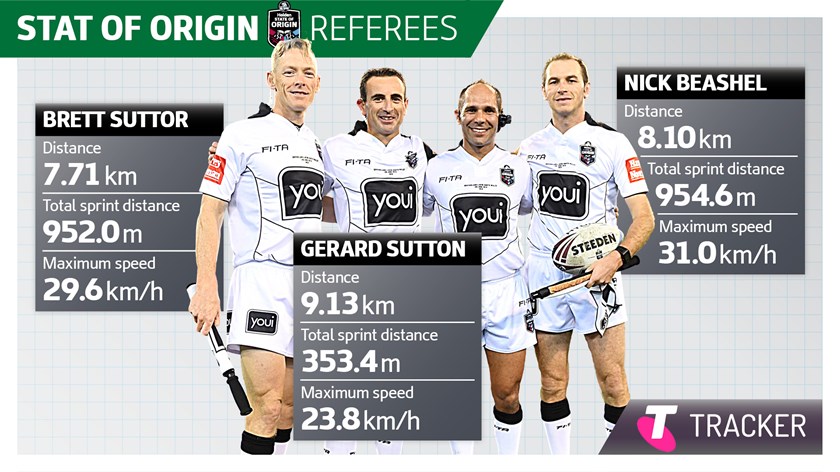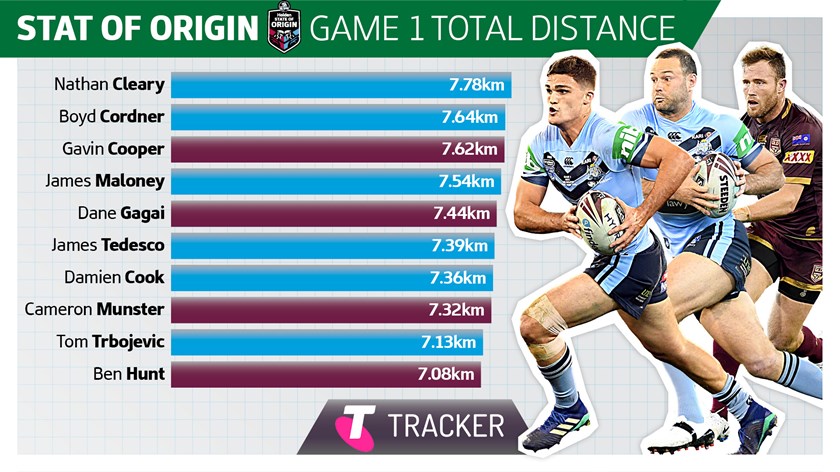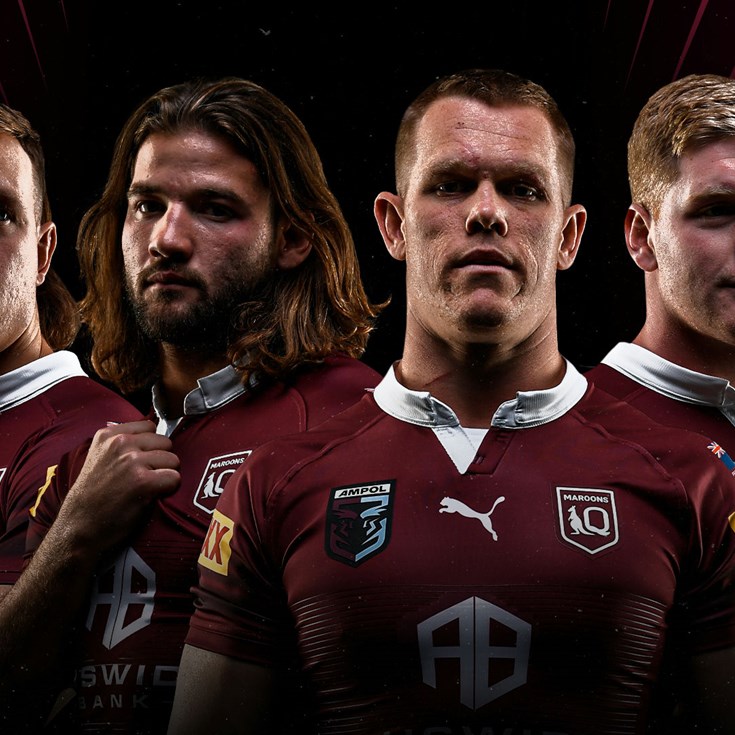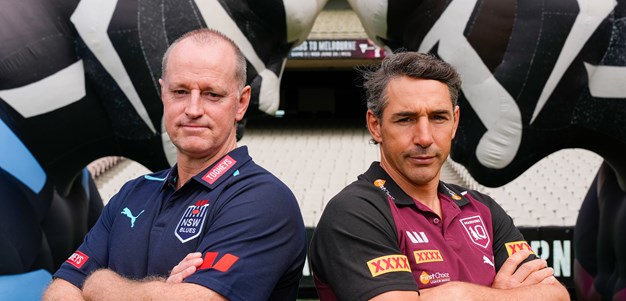State of Origin famously takes its combatants to "hell and back", as Jarryd Hayne once put it.
Now new performance data shows the referees push themselves to similar physical and mental extremes in arguably Australian sport's biggest pressure cooker.
Whistleblowers Gerard Sutton and Ashley Klein received largely rave reviews for their control of the Holden State of Origin series opener in front of 87,122 fans at the MCG, presiding over a contest where just five penalties were awarded.
The free-flowing fixture made for one of the more intense Origins in recent times, according to Telstra Tracker data, with the officials churning out gut-busting numbers of their own to match the 34 players.
In total, Sutton clocked 9.13km up and down the MCG, while touch judges Nick Beashel (8.1km) and Brett Suttor (7.71km) also ran further than all bar one player – NSW halfback Nathan Cleary, who finished with 7.78km under his belt.
Typically, pocket refs run 10% further than their lead referees as they get to and from each play-the-ball, however Klein's data was unavailable due to a technical malfunction. It's likely he broke the 10km barrier in Origin I.

All the while the officials are making potentially game-turning decisions on the run, with over 10 minutes of the second half at the MCG producing continuous, non-stop action, and pushing both the officials and players to the limit.
"That overall distance covered by the officials is probably up about 10% on what they would do in a normal NRL game," Matt Jeffriess, head of the NRL referees' high-performance unit, said.
"That long period of play where the ball is in play for 11 and half minutes [from the 50th to the 61st minutes], that's really unheard of in a standard NRL match.
"But when you've got the 34 best players in the world out there, the quality and the skill level goes up while the error rate goes down. And their discipline is that next level as well.
"During that period where Gerry Sutton is running 120 metres a minute is much higher than usual at NRL level. He essentially runs 1.3km in 10 minutes, while managing an Origin game.
"To perform the way those guys did in game one under that intense strain was really pleasing."
While Queensland took issue with what appeared to be a forward pass for Josh Addo-Carr's match-sealing try and a contentious dropped ball decision against Dane Gagai, both coaches were positive about the refereeing overall.
The physical toll of officiating obviously doesn't involve any of the brutal physical contact Origin has grown famous for producing.

But the full-time nature of refereeing at the highest level now produces athletes in its own right, with members of the NRL's top officiating squad able to clock up to 34 km/h – speeds that match all but the absolute fastest players in the Telstra Premiership.
None of which is by accident. The game's top whistleblowers now train year round, while everything from meditation and yoga to sensory deprivation tanks are used to have them at their best.
"To still make quality decisions under that physical strain takes a lot of effort and training," Jeffriess explains.
"One element of that is B-TUF sessions, which is Brain Training Under Fatigue.
"In the gym, we'll fatigue them so their heart rates are similar to what we see in a game, and then we have them do a series of cognitive tests such as iPad games and actually calling live footage in their pairings as they would in a game, but under a controlled environment.
"We'll use our ref cam so it's as exact to a referees' perspective as it gets. We'll simulate four decisions in quick succession using the ref cam and then it's back on the rower or bike for up to an hour to match the training load a game would create."
Don't miss Game II of Origin at ANZ Stadium on Sunday June 24. Get your tickets here



